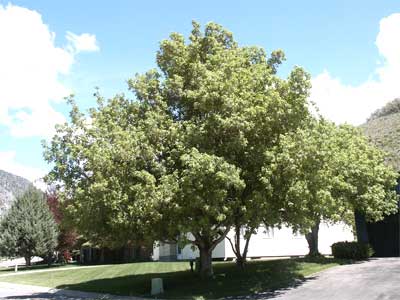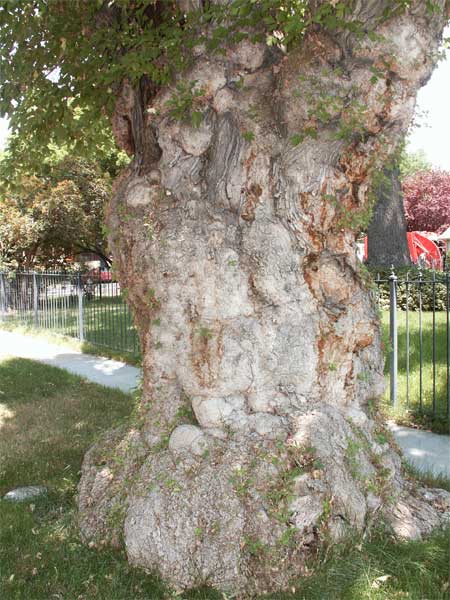Boxelder or Ash-leaved or Manitoba Maple
Acer negundo
Family: Aceraceae or Maple
Leaves: Opposite; once pinnately compound with 3 to 7 leaflets; deciduous; leaflets quite variable, ovate to lanceolate, coarsely serrate margins or sometimes 3-lobed at base; bright green with yellow to yellow-green fall color; rachis stout, enlarged at the base.
Twigs/buds: Twigs stout; green to purple-green; frequently covered with a blue-white coating. Terminal bud oval, somewhat white and woolly.
Flowers/fruit: Flowers dioecious; green to yellow; small, inconspicuous; bloom in March or April. Fruit a samara; V-shaped; double-winged; hangs down; ripens in fall.
Bark: Thin; pale gray or light brown; deeply divided by furrows into rounded, interlacing ridges.
Wood: Unimportant; sapwood white; heartwood light brown; often colored by mineral stains; growth rings not very distinct; diffuse-porous; used for cheap furniture, etc.
General: Native to much of North America, including Utah. A very tough tree that does best on moist, deep soils, but also will survive on poor soils and dryer sites. Intermediate shade tolerance.
Landscape Use: Very common, but undesirable as an ornamental in all except the worst conditions. Often nearly completely defoliated in early summer by the boxelder leaf roller, but usually puts on new leaves with no problem. Boxelder bugs can be a nuisance where female trees are found (they feed on the fruit). Weak-wooded. Zones 2-9.
Comments & Limitations:
- Weak wood and/or branch structure.
- Rarely should be planted, though limited use in specific situations may be justified.





